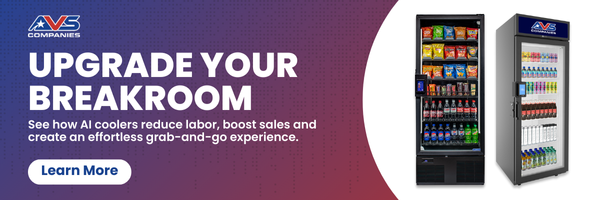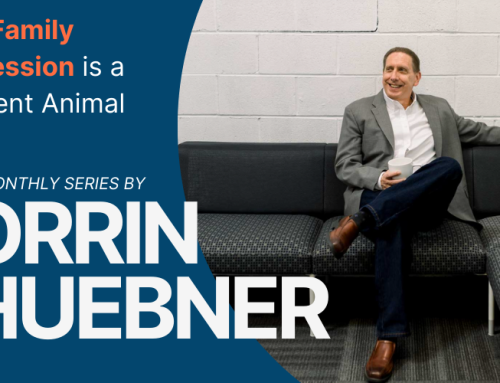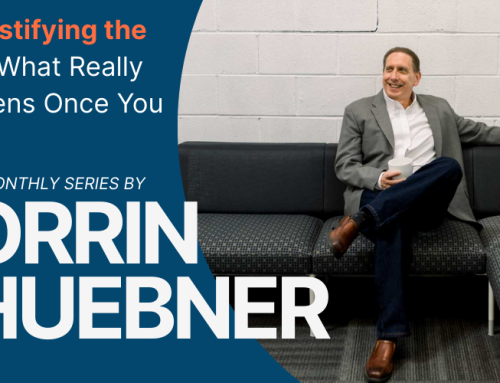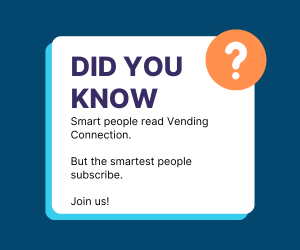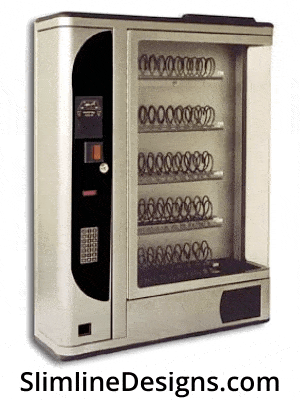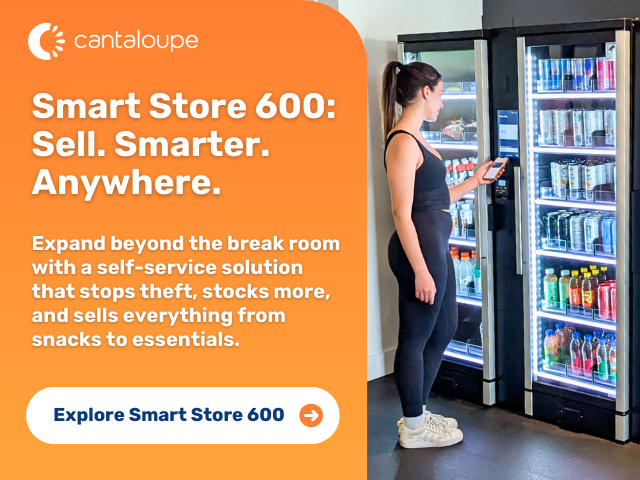By Neil Swindale and Orrin Huebner — Episode 5 of the Mergers & Acquisitions Segment
The vending and refreshment services industry is buzzing with activity — and not just from coffee brewers and micro markets. Mergers and acquisitions are in full swing, with companies large and small making strategic moves to strengthen their foothold.
In the latest episode of the Mergers & Acquisitions segment, host Neil Swindale and industry dealmaker Orrin Huebner dive deep into one of the most critical factors that determines how much your business is worth when it’s time to sell: contracts.
Deals, Consolidation, and a Hot Market
As Orrin shared, the deal flow hasn’t slowed, even heading into the holidays. “I’ve got five deals still scheduled to close this year,” he said. “If we can get four of the five across the finish line, it’ll be the best year ever.”
Neil added that during his travels — from the USG Elite Summit in Napa to the Coffee and Tea Show in Miami — the chatter was all about recent acquisitions: Drop-A-Coin, Bettoli Vending, and Crickler Vending, all snapped up by industry giants.
That momentum is being fueled not just by strategic buyers, but by private equity and venture capital groups that increasingly see vending and micro markets as smart, stable investments.
Why Contracts Matter So Much
So where do contracts come in? According to Orrin, they’re one of the biggest drivers of company value — and the lack of them is one of the most common mistakes sellers make.
“When you sell your business, the more of your accounts that are under contract, the more likely you’ll get a better dollar for it,” Orrin explained. “Contracts show commitment beyond today or tomorrow — they show you’re running your business the right way.”
Contracts don’t just lock in clients — they protect you. They clarify liability, spell out performance standards, and outline who’s responsible if something goes wrong.
“If a water line floods a breakroom or someone gets hurt shaking a vending machine, who’s liable? The operator or the client?” Orrin asked. “Without a contract, you’re rolling the dice.”
Even short-term agreements or liability clauses make a huge difference. “Every client should have some form of written agreement,” Orrin added. “If you don’t, buyers may hold back more money during the sale — maybe 30% instead of 20% — or even require your top accounts to be under contract before closing.”
Eliminate Any Gray Areas
When selling, gray areas make buyers nervous. Orrin advises operators to turn the “maybes” into facts.
“The less gray, the better,” he said. “You want clear, black-and-white answers. Show buyers you’ve identified issues, made improvements, and know your numbers.”
A good intermediary will push you with tough questions long before the buyer does. “If your broker isn’t making you squirm a little,” Orrin warned, “you’ve got the wrong one.” Buyers will ask harder questions than your broker ever will.
Know Your Assets — Every Machine Counts
Contracts aren’t the only documentation that adds value. Having a detailed asset list — make, model, serial number, and age of every piece of equipment — is essential.
“When buyers ask, ‘How old is your equipment?’ you can’t say, ‘I don’t know,’” Orrin said. “From day one, track every asset. If you’ve got 300 machines out there, you should know where each one is.”
Modern VMS systems make this easier, but only if operators take the time to use them properly. “Don’t wait until you’re ready to sell to figure it out,” Neil added. “It’s four times the work if you have to backtrack later.”
AI, Automation, and the Changing Landscape
Both Neil and Orrin also touched on how AI and robotics are reshaping the workplace — and, by extension, vending operations.
White-collar layoffs at companies like Amazon show how quickly artificial intelligence is impacting the job market. “Blue-collar jobs are being automated by robots, white-collar jobs are being replaced by AI,” Orrin noted. Fewer people in offices means fewer snacks, fewer cups of coffee, and less pantry demand.
That’s why it’s so important to plan ahead. If you’re thinking about selling within the next five years, consider how AI and automation might affect your client base — and act now while valuations are still strong.
Always Be Ready to Sell
If there’s one recurring theme from the M&A Show, it’s this: run your business like it’s for sale from day one.
Having solid contracts, accurate financials, documented assets, and reliable processes doesn’t just prepare you for a potential exit — it also makes your company more profitable today.
“You’re having your best year until you’re not,” Orrin said. “Don’t wait for a downturn to start preparing.”
Neil agreed: “If we can help even one operator earn a few extra percentage points when it’s time to sell — just by being prepared — that’s a win for them, a win for us, and a win for the industry.”
Key Takeaways
- Always have NDAs and contracts in place before sharing information.
- Contracts demonstrate professionalism, reduce liability, and increase sale value.
- Track every asset — it’s money left on the table if you don’t.
- Be ready to answer tough questions with black-and-white data.
- Run your business like it’s for sale from day one.
Would you add anything to this?
🟢 Want to be ready to sell when the time is right? Subscribe to Vending Connection so you never miss one of Orrin’s M&A articles.
Orrin Huebner is the CEO of Orrin Huebner LLC. After many years of being an owner/operator, he now consults and is an intermediary to the industry. His experience as a very successful operator and then leading OCS for a Canteen provides great value.


